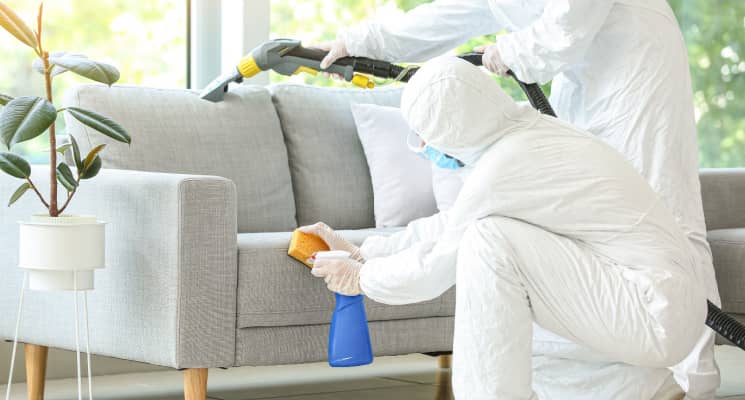Dealing with pests can be a nightmare, especially when you feel your living space has become a sanctuary for them. If you're struggling and asking yourself how to ask your landlord for pest control, you're not alone. Many tenants encounter this situation and may feel unsure about how to approach their landlords.
In this article, we will guide you through the necessary steps to effectively communicate with your landlord about the pest issues in your home. Well cover the importance of documenting evidence, knowing your rights, and how to have a polite conversation with your landlord.

Understanding Your Rights as a Tenant
Before reaching out to your landlord, its crucial to understand your rights as a tenant. Laws can vary by state and locality, but generally, landlords have a responsibility to provide a habitable living environment. This includes addressing any pest control problems promptly.
Research local tenant laws regarding pest control. Resources like the National Pesticide Information Retrieval System can provide you with valuable insight.

Documenting the Pest Problem
When asking your landlord for pest control, appropriate documentation is vital. Take pictures of the pests, any damage theyve caused, and any droppings or evidence you can find.
Additionally, keep notes on the dates you noticed the pests and any previous communications with your landlord regarding the issue. Documenting these details not only strengthens your case but also shows that you are serious about tackling the problem.
Gathering Evidence
As you collect your documentation, consider the following tips:
- Photographs: Capture clear images of the pests or damage.
- Written records: Maintain a log of sightings and any previous reports made to your landlord.
- Witness statements: If your neighbors have similar problems, their accounts can support your request.

How to Approach Your Landlord
Once youre ready to communicate, its important to approach your landlord in a respectful and clear manner. Here are some key points to consider:
Utilize Written Communication
Sending your landlord a formal letter or email is a good strategy. In your message, be sure to:
- State the issue clearly: Describe the pests youve encountered and when.
- Reference any documentation: Mention that you have evidence that can be shared.
- Request a meeting: Ask if you could discuss the issue further in person.
Conversational Approach
If you manage to set up a meeting, prepare yourself for the conversation. Be polite but assertive. Here are some phrases to use:
- 'I've noticed an issue with pests in my apartment and would like to discuss how we can address this problem.'
- 'I have some documentation showing the situation that I believe requires action.'
- 'Can we discuss potential pest control services to resolve this?'

What to Expect After Your Request
After you have communicated with your landlord, you might wonder what happens next. Most landlords will have protocols in place to address pest-related complaints.
They may schedule a professional pest control service to inspect your unit and take action, arrange for you to document further, or they might present you with solutions to alleviate the issue.
Follow Up
Always follow up on your request to ensure the pest control service has been initiated. A simple email or call to your landlord can keep the lines of communication open.
Know the Next Steps if Problems Persist
If your landlord is unresponsive or fails to take action, its important to know your options. Here are some steps you can take:
- Contact local housing authorities: They can provide information about your rights and may contact your landlord on your behalf.
- Seek legal assistance: If necessary, consult a lawyer who specializes in tenant rights.
- Consider tenant organizations: Groups that focus on tenant rights may offer guidance.
Preventative Measures to Avoid Future Issues
Once the pest problem is resolved, its essential to take preventative measures. Heres how to keep pests away:
- Clean regularly: Ensure floors and surfaces are free of crumbs.
- Seal entry points: Check for any cracks or openings around windows and doors.
- Utilize traps: Consider using products such as lanternfly repellents to deter pests.
FAQs
What should I do if my landlord refuses to help me with pest control?
If your landlord is unresponsive, you can contact local housing authorities for guidance and support.
Can I handle pest control myself?
While you might be able to manage minor pest issues, its generally best to have a professional handle significant infestations due to health risks.
How long does it take for pest control to work?
Most pest control methods will show results within a few days, but it can take a couple of weeks for severe infestations to be fully addressed.
To learn more about pest control methods, you can check FieldRoutes.
As an Amazon Associate, I earn from qualifying purchases.
